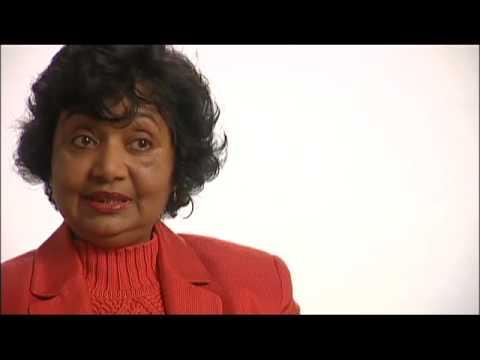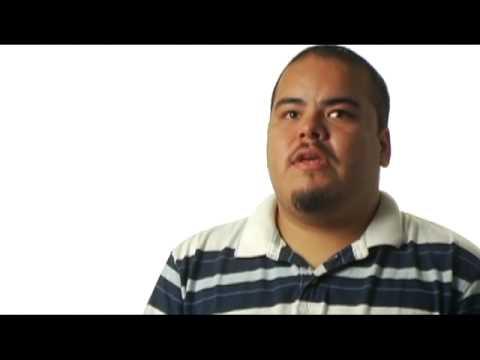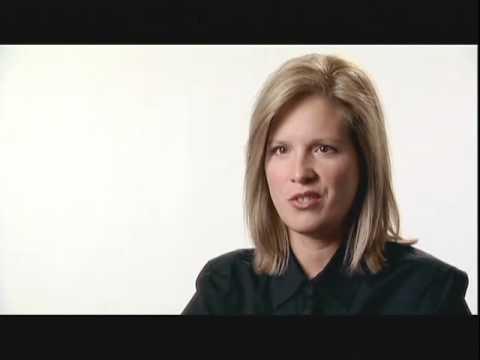Jon L.
My wife, Jamie, was diagnosed with breast cancer.
She was diagnosed on a Monday, had her mastectomy Monday afternoon, and the Wednesday of that week, we went to the Providence Breast Cancer Support Group. I was told I couldn’t come in because I wasn’t a survivor. That moment, more than any in her treatment, was very defining as far as, this was her thing, and my thing was gonna be separate.
At the time, in Anchorage, there wasn’t anything for men in the way of support. Since then, I’ve gotten involved with a group called Men Against Breast Cancer, which is a national organization. Their motto is “Supporting the women we love.” They’ve been a good organization for me to get involved with. It’s given me some direction. Basically what I’m working towards is making sure that men don’t have to suffer, like I feel I had to suffer. It helps men become better support partners.
As far as communication, we both withdrew. We stopped talking to each other. Other than satisfying each other’s very basic needs, as far as making sure we were fed, watered, and clothed. She was being treated and the treatment was making her very sick. Other than taking care of her basic needs, she couldn’t help but pull back because of her treatment, and I withdrew because I wasn’t getting any kind of emotional feedback from her other than her illness. So that was really rough on me.
Once the treatments were over, we both pursued a fairly aggressive counseling path. We went to couples’ counseling. We went to individual counseling. You can never start over in a relationship, but we had been knocked back pretty far. We really worked on rebuilding the intimacy and the friendship. A lot of the friendship was beaten up as a result of the treatment.
Over the years, we have done a lot together. We’ve taken community classes together. We went through childbirth together, as much as I could go through it. Just both very integrated in each other’s lives.
She had her mastectomy, went through months of chemo, and then for about a year, only had one breast. Then she had that breast removed. For about a year, she had no breasts. And then she decided on reconstruction. So her body changed a lot. When we went on a vacation in Florida, she bought a bathing suit and said that she had the opposite problem that she’d always had all of her life. She always had suits that were too tight on top and too loose on the bottom. She went from that to having suits that were too loose on the top and too tight on the bottom. For me, it didn’t really matter that much. I loved who she was, not the representation of who she was. I just wanted to see her healthy.
As far as her body image changing, it was weird, but what in life isn’t weird. It was just something else. Just another change. Life keeps moving forward and that was just the direction we were going. I know that with the reconstructions, they were both painful and miserable. A lot of physical pain for her. She had a drug reaction that was pretty severe and made her psycho for a couple of days. That was fun. That’s part of those challenges. It was a learning experience on both of our parts. Now she has fake boobs or as her doctor called them “stripper boobs.” That’s the reality of it.
The learning process has been odd. Jamie comes from a strong medical background, and I come from a strong technical background. So for me, I had to learn a lot about what her and her doctors were talking about because they were talking a mile a minute and both understood each other. I was like, “Ah, excuse me. I don’t know what’s going on.” So I had to catch up to speed with that.
But with the surgeries and the treatment, as it relates to intimacy, she’d been hurt enough. I didn’t want to hurt her, so I was afraid to go near her. She’s a very strong woman, but she was very fragile because of those things. I didn’t want to hurt her any more physically. That was one thing for me. I was just afraid to touch her.
The counseling helped me work on my own flaws. The counseling we had together really helped us sort out some expectations that we had for each other that were both reasonable and unreasonable. It helped us focus on flaws that each of us had in our communication methods.
With our daughter, because of her age, she knew something was going on, but we were honest with her. We gave her as much as information as she could handle, that was age-appropriate. We didn’t ever hide anything from her. I remember one instance, where it was right after Jamie’s first mastectomy. She’d had all the bandages taken off. She’d had the drain tubes removed. She was in the bathroom getting ready for the day, and I was lounging in bed, as I have a tendency to do. Our daughter wandered into the bedroom, and she kept looking into the bathroom. She’d turn, look at me, and look in the bathroom. I’d say, “Hannah, what’s wrong?” And she said, “Well, the boob’s gone.” I said, “Yes. It is.” She said, “Oh. Okay.” Like they were detachable, like the parts of her Barbie dolls or something. We just treated it very matter of factly. We didn’t make a big deal out of it. We didn’t want to scare her. We wanted to give her information that was age-appropriate. So that’s how we treated that.
Jamie would have her chemo either late Thursday or sometime during the day on Friday so that she’d have the weekend to recover, so she could be back to work on Monday or Tuesday. We would send Hannah to my in-laws for the weekend so she didn’t have to see Jamie being sick. I think that that really helped her from being traumatized by that portion of it.
I think that what we’ve done is focus more on the family, focus more on spending quality time with both of our girls and doing family activities. Living as fully as we feel we can, not missing opportunities, getting out of our comfort zone and trying new things that we ordinarily wouldn’t do. We’re both more active in the community, both in the motorcycling community and the breast cancer community.
When we got back from Hawaii and found out that Jamie was pregnant, we were in baby mode. We were scheduled two weeks after we returned to speak at the breast cancer support group. It was a huge change in thought pattern to move from baby mode back to cancer mode. Both of us, because of that experience, decided that not only can we never forget what happened, but it would be a huge opportunity for us to help others by talking about what we went through and by sharing with other people. There have been several instances where we’ve mentored other couples. There are other partners that I’ve talked to and that’s very cathartic. It’s good for me to be able to share my story. Recently, I talked with a guy that said, “I probably never will call you. But it was helpful to hear that you had the same feelings and the same fears.” For guys, maybe we don’t talk as much but to know that someone has been through it is comforting.
Livestrong™ means enjoying every mile on my motorcycle that I get to ride with Jamie.
My name is Jon, and my wife Jamie is a four-year breast cancer survivor.





